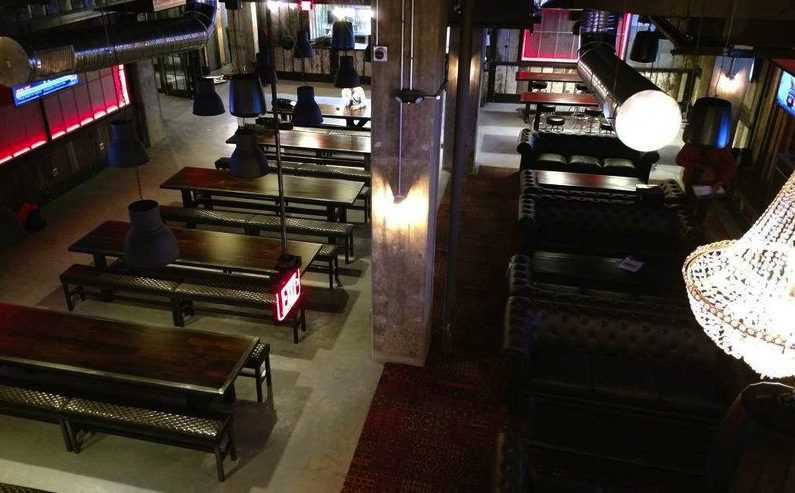Panel Addresses Georgetown’s Restaurant Future
By • May 17, 2018 0 1280

The restaurant business has been big news in Georgetown lately.
A recent survey by the Georgetown Business Improvement District found that residents and people who work in Georgetown have a strong interest in having more restaurants — quick lunch, family and fancy — in the neighborhood.
Some 20 new restaurants and cafes have opened or are expected to open in 2018. That number includes the new America Eats Tavern of famed chef José Andrés in the former Old Glory space at 3139 M St. NW, scheduled to launch May 30.
The wide variety of new eateries also includes a Guapo’s at 3050 K St. NW, a Capital One Café at the corner of Wisconsin Avenue and M Street and a souped-up Wawa convenience store at the corner of Wisconsin and Prospect Street (former location of Restoration Hardware).
Then there’s a controversial measure — Initiative 77 — on the June 19 primary ballot in D.C. Voters will be asked to decide whether or not to require that the wages of all employees in the District — including those receiving tips, such as waiters and bar hosts — be gradually raised to match the minimum wage for non-tipped employees.
And, underpinning it all, is the serious competition that has emerged from new dining and entertainment venues — at the Wharf, in Penn Quarter, in Shaw and along the 14th and U Street corridors, among others.
People are interested, excited and concerned. Close to 200 restaurateurs, entrepreneurs and Georgetown residents packed the new Church Hall beer hall at 1080 Wisconsin Ave. NW on May 14 to hear a roundtable discussion on “Georgetown’s Restaurant Renaissance.” The co-sponsors were Michael Phillips, president of Jamestown, which owns Georgetown Park; Geoff Dawson of Tin Shop and Church Hall; and the Restaurant Association of Metropolitan Washington.
Georgetown BID CEO Joe Sternlieb credited the burgeoning number of restaurants locating here to the ending in April of 2016 of the moratorium on liquor licenses in Georgetown. “It took two years of hard work by community members of the Citizens Association of Georgetown, the Georgetown Advisory Neighborhood Commission and BID to end the severe restrictions, but it has made a significant difference,” he said.
Eight panelists representing the 62 full-service restaurants (some with live entertainment) and 59 quick-service eateries (including cafes serving sweets) currently operating in Georgetown spoke to some of the challenges of doing business in the neighborhood. Washington Business Journal restaurant reporter Rebecca Cooper moderated the panel, covering a broad range of topics, such as the top elements sought when considering a new restaurant site: ambiance, unique characteristics, needs of the community and the like.
Other topics included advice for first-time restaurant owners (have a distinct concept, ID, personality and POV for the business), staffing and partnerships.
Initiative 77 elicited the most heated responses from the panelists; none was for it. Examples of comments were: “It will kill us. Restaurants all over town will close if it passes. It’s a problem that isn’t. Servers do well in D.C.”
Most of the comments elicited enthusiastic applause from the audience. Afterwards, spectators and panelists could be seen carrying “Vote No on #77” and “Save Our Tips” posters to post in their establishments or to circulate elsewhere.
The roundtable panelists included: Ari Gejdenson, Mindful Restaurants Group; Katsuya Fukushima and Yama Jewayni of the Daikaya Group; Jamie Leeds of JL Restaurant Group; Stephen Fedorchak and Brian Normile The Liberty Tavern Group; and Ype Von Hengst and Bob Giaimo of Silver Diner.

